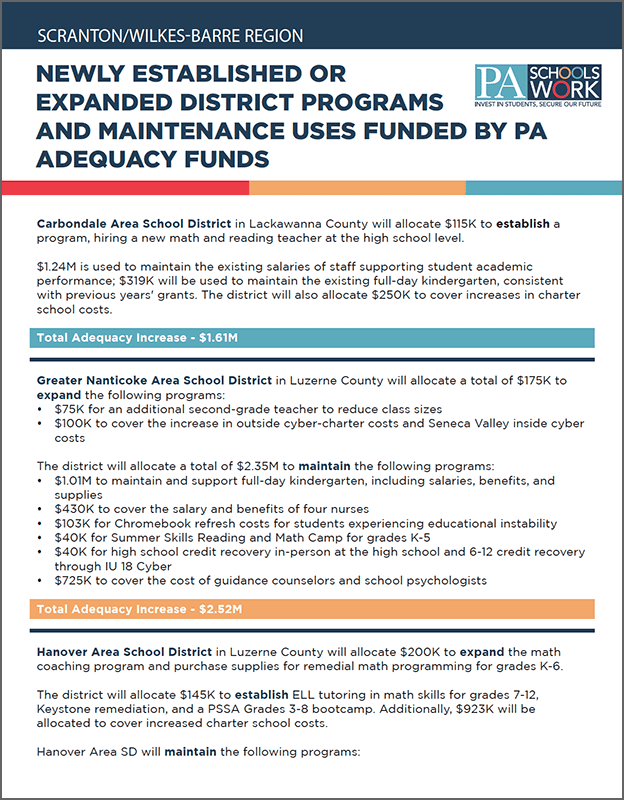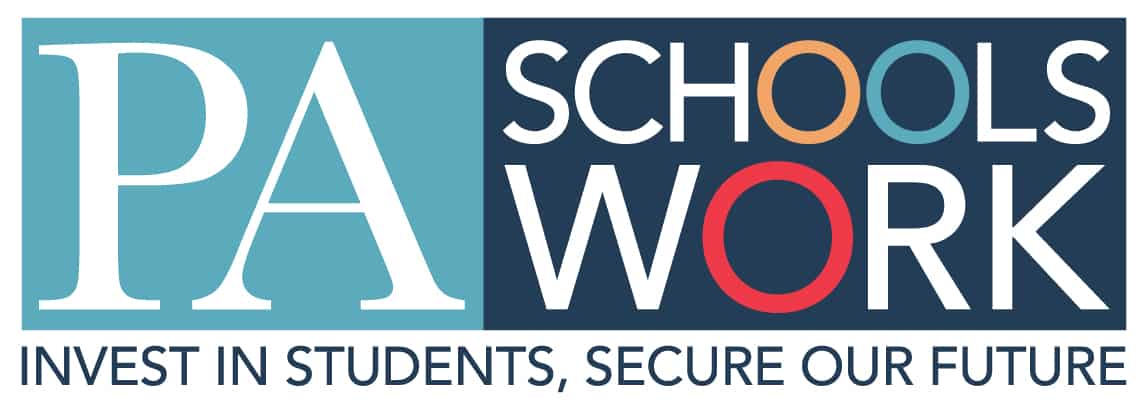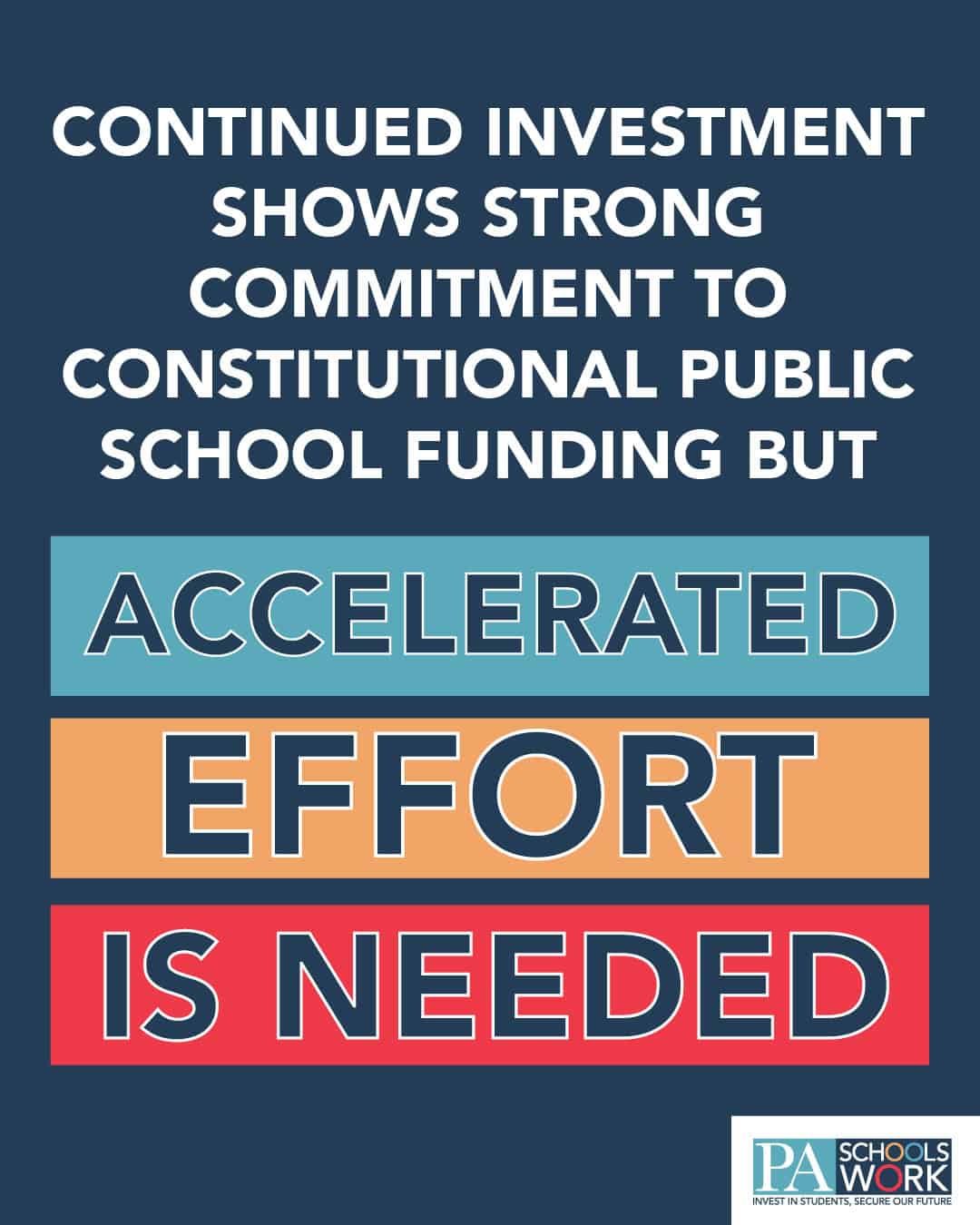BUDGET
Education Advocates: Governor’s Budget Proposal Builds on Last Year’s Progress – Continued Investment Shows Strong Commitment to Constitutional Public School Funding But Accelerated Effort Is Needed
State Legislature Must Support and Build on Governor’s Education Investment Plan, Establish Clear Timeline for Full Constitutional Compliance
HARRISBURG, PA (February 4, 2025) – The PA Schools Work Campaign, a coalition of 17 organizations from across Pennsylvania representing thousands of educators; urban, rural, and suburban communities; parents and community leaders working together to increase funding for PA public schools, made the following statement regarding Governor Josh Shapiro’s proposed 2025-26 executive budget:
“Education advocates across Pennsylvania welcome Governor Shapiro’s continued commitment to building a constitutional public school funding system. The positive impact of last year’s investments is already visible in classrooms across the Commonwealth, demonstrating that targeted funding works for our students.
“The governor’s proposal includes nearly a half a billion new dollars for the 348 school districts— including 181 rural districts—that need the state’s help the most. The proposal marks a critical investment toward reaching constitutional compliance. The Governor’s wise stewardship of tax dollars drives the overwhelming share of the increased funds for public schools to the school districts that
need those funds the most.
“The governor took another step toward compliance with the state court mandate to address the underfunding of low-wealth schools. The proposed increase is a strong step forward. However, it means that the state would still need to close a $3.5 billion adequacy gap as identified by the governor and legislature last year. With 70% of Pennsylvania public school students living in districts with adequacy gaps, the partners in this campaign expect to work with the House and Senate to build on this proposed increase and hasten the pace of closing the gap.
“We urge lawmakers to use the governor’s proposal as a starting point and to accelerate the timeline
to get every school district the resources they need.
“This education funding proposal must be viewed through the prism of the complex environment public schools operate in and the very real budgetary constraints that create barriers to their success, rather than a line-by-line perspective. The final budget agreement must include, and in many cases exceed, the other educational investments and reforms outlined in the governor’s budget. These include additional investments in basic education and special education to protect schools from inflationary cost increases, career and technical education, school facilities, pre-K, and more. The proposed reform to cyber charter tuition payments must be non-negotiable, since without it the increases in other funding line items don’t keep pace with inflation in most school districts. The General Assembly, working with the governor, should pass a final budget that won’t burden local taxpayers.
###
PA Schools Work is a non-partisan coalition of organizations from across Pennsylvania representing teachers and other educators; urban, suburban, and rural communities; and parents and community members working together to advocate for PA public schools, their students, and the communities they serve. PA Schools Work partners include: 412 Justice, ACLAMO, The ARC of Pennsylvania, Children First, Education Law Center, Education Voters of Pennsylvania, Keystone Research Center, Make the Road PA, PA Youth Vote, Pennsylvania Policy Center, Public Interest Law Center, Research for Action, Teach Plus PA, and the Urban League of Philadelphia. For more information on PA Schools Work, visit www. paschoolswork.org.
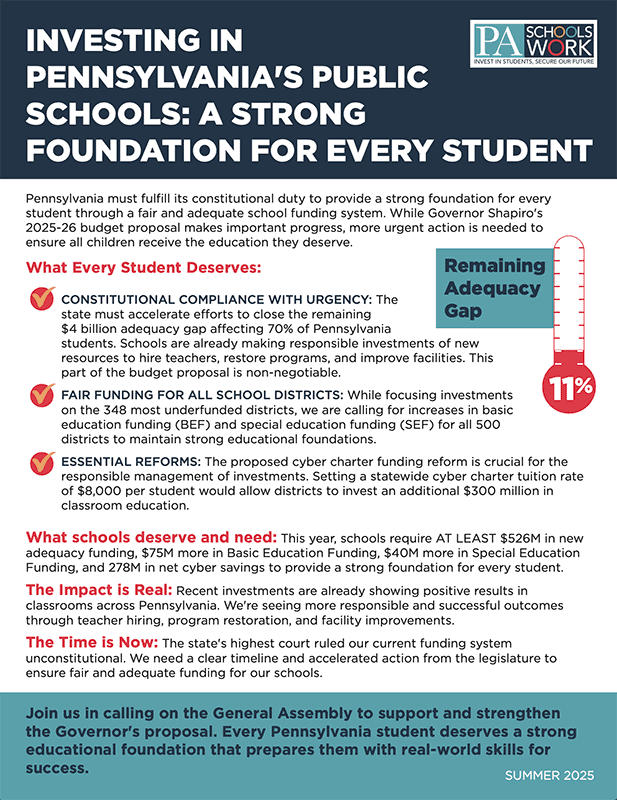
Budget Advocacy 2025-26
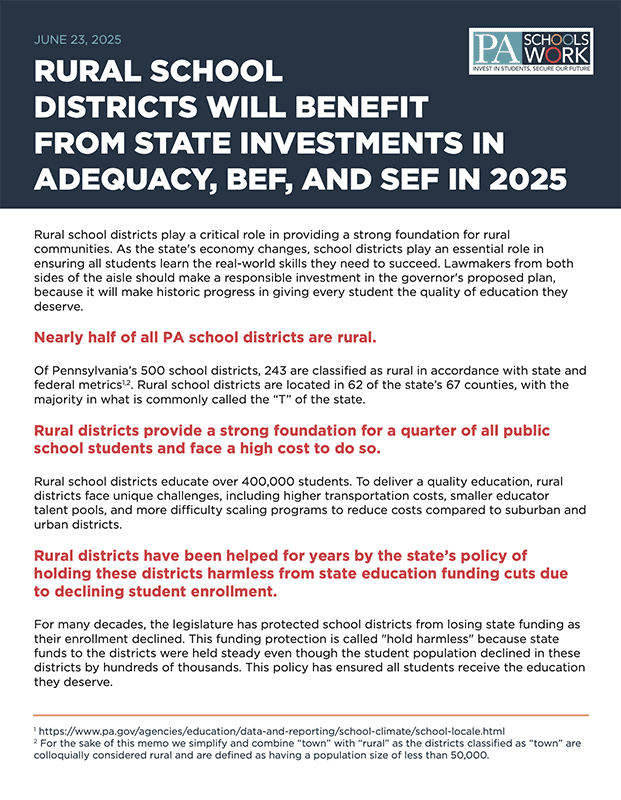
Rural School Districts in 2025
Newly Established or Expanded District Programs and Maintenance Uses Funded by PA Adequacy Funds

Harrisburg / Lancaster / Lebanon / York
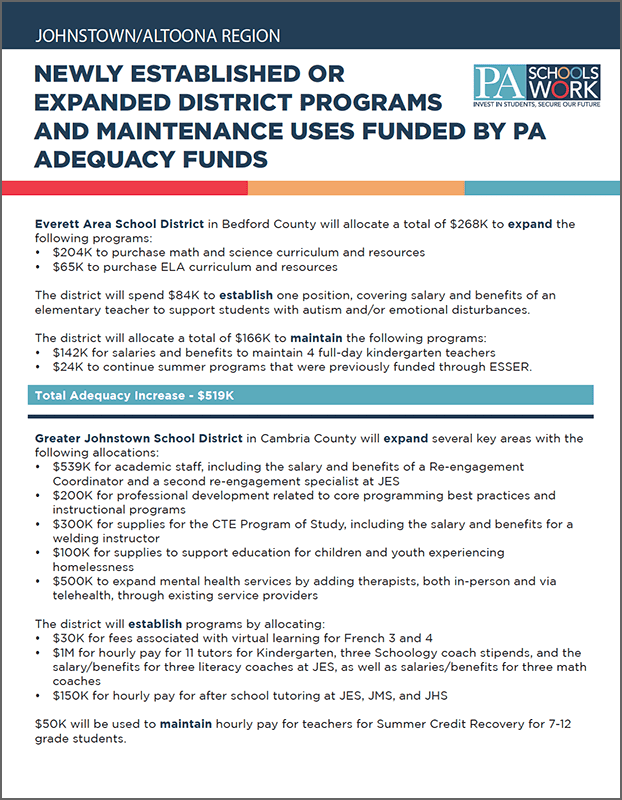
Johnstown / Altoona

Lehigh Valley

Philadelphia
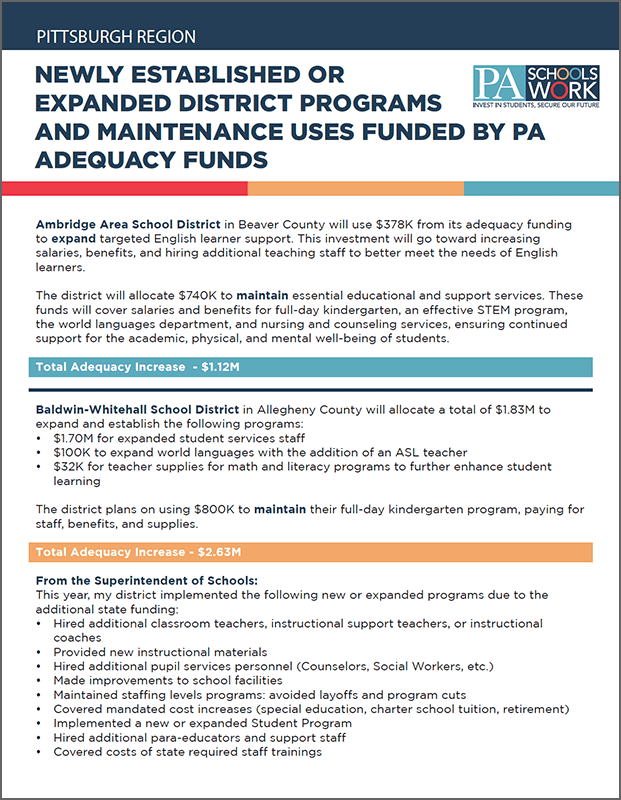
Pittsburgh
